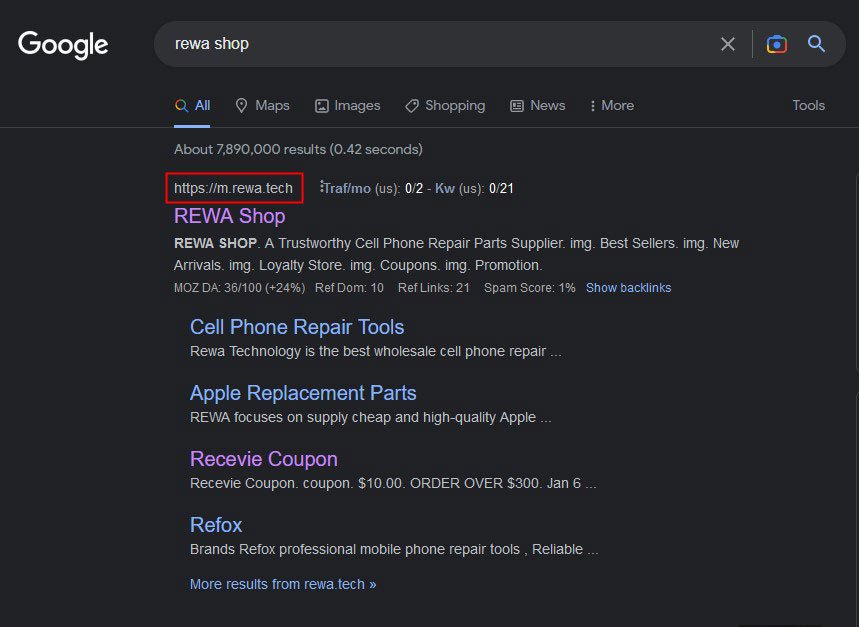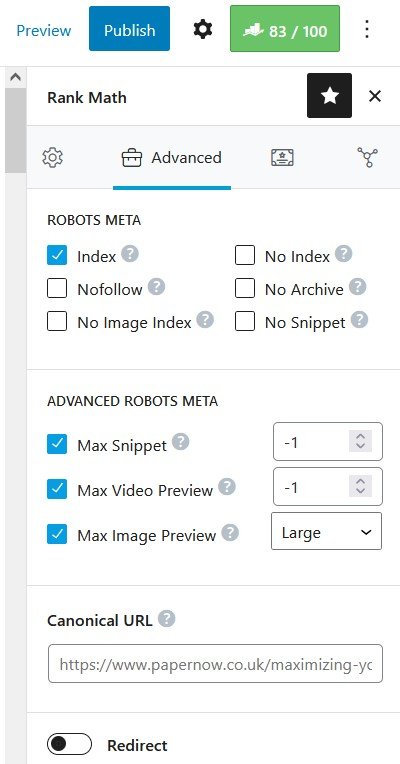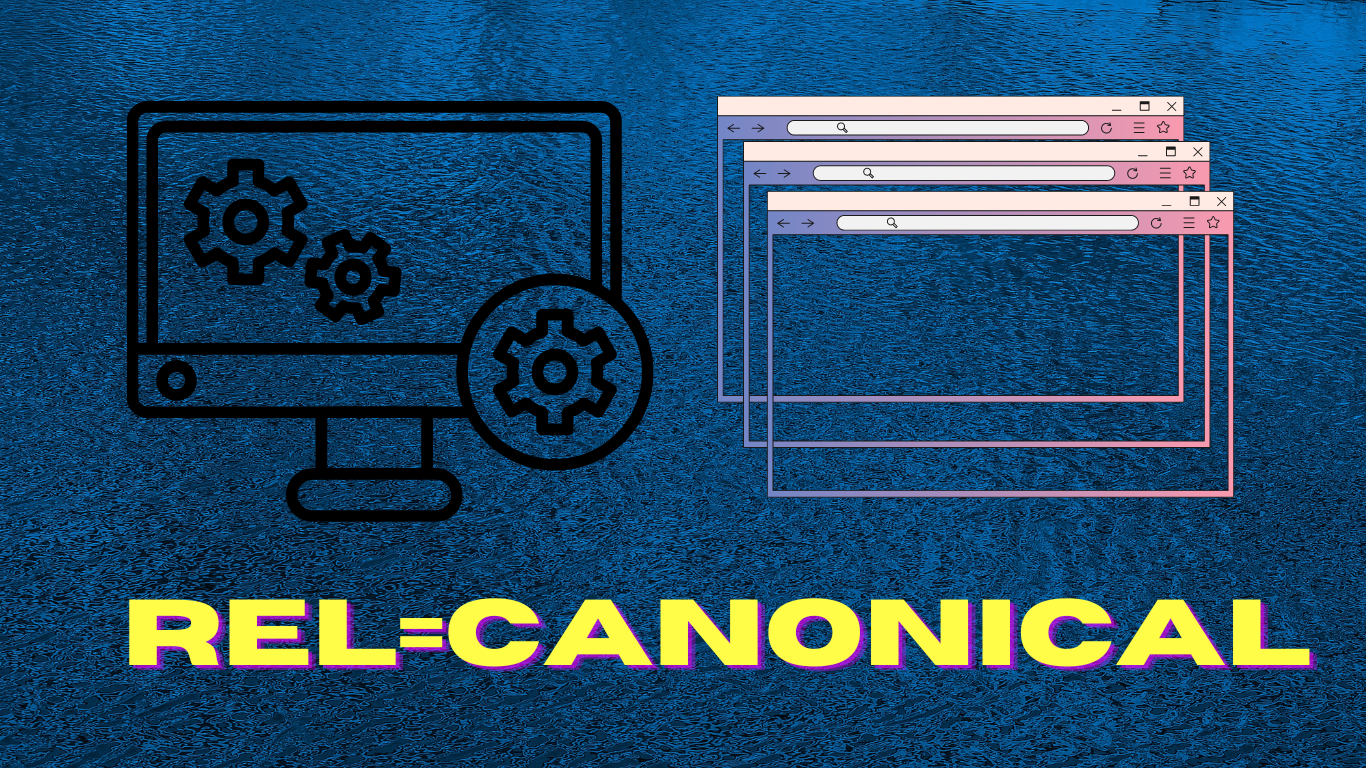If you run an online business, you probably understand the importance of SEO and canonical tag. Despite claims that SEO is dying because of developments like ChatGPT, search engine optimization is still one of the most significant things that online businesses and blogs should pay attention to in order to obtain traffic and increase revenue from search engines such as Google, Bing, Yahoo, Baidu, etc.
SEO is a complex field with numerous factors that can affect your website’s search engine rankings. One of these factors is duplicate content or duplicate URL, which can occur when you have multiple pages on your website with very similar or identical content. This can cause problems for search engines, as they may have difficulty determining which page to show in the search results. In this blog, we will discuss and demonstrate how to use Canonical tags on your website in order to improve its performance on Search Engines.
What is a Canonical Tag?
A canonical tag, or canonical URL, also known as a “rel=canonical” tag, is a piece of HTML (Hypertext Markup Language) code that instructs search engines which version of a webpage to index and display in search results. It helps to inform search engines that certain pages on your website are duplicates of another page, with the original version taking priority in search engine results.
For example, https://example.com and https://m.example.com, Google, and other search engines have a hard time figuring out which one to index and which to rank, so they label them as duplicates.
By using canonical tags, you can prevent search engines from indexing irrelevant or duplicate URLs and resolve issues related to duplicate content. Essentially, canonical tags signal to search engines which URL of your website should be indexed, improving the accuracy and relevance of search results.
Real-Life Case Study
This is the true story of Tariqur Rahman, who serves as SEO Director at REWA Tech, a well-known Chinese supplier of cell phone parts and tools. The company operates two separate websites, one for mobile and one for desktop. While managing two distinct websites is not overly complex, it can occasionally present challenges due to a lack of clear SEO guidelines.
What Happened?
At the beginning of this year, his company launched a newly designed mobile website, which, unfortunately, did not have a canonical tag. Within just a few days, he noticed a sharp decline in desktop search clicks and impressions, while mobile traffic saw a remarkable increase of 300%.


Upon examining the two pictures, it is evident that there are noticeable differences between them. The first picture demonstrates a sharp decline in website traffic for a desktop site, which can be attributed to the absence of a Canonical tag. The graph presented in the picture displays a significant drop in traffic, highlighting the adverse impact of not implementing a Canonical tag.
In contrast, the second picture depicts a remarkable surge in traffic for the mobile version of the website. The graph exhibits a consistent upward trend in website visits over time, with the increase becoming more pronounced as time passes.
The importance of canonical URLs
Canonical tags are an essential part of search engine optimization (SEO) that allows website owners to avoid duplicate content issues and ensure that their web pages are properly indexed by search engines like Google, Bing, Yahoo, Baidu and etc.
Canonical tags are used primarily to inform search engines which version of a webpage you wish to be indexed by search engines. It is useful when there are similar or identical pages with URLs. An example is when a website has a different mobile site and a desktop site, or when a product page has multiple URLs, or when content is syndicated across multiple domains.

As you can see in the picture above, Google indexed their mobile site due to the lack of a Canonical tag. Consequently, when someone searches for REWA brand keywords or related terms, Google displays mobile URLs, which could mislead potential customers.
How to Implement Canonical Tags
As we have mentioned before Canonical is a piece of HTML come. And it is easy to implement on your website. However, depending on your website the process could be different to add Canonical URLs.
Custom or HTML Website
<link rel="canonical" href="https://papernow.co.uk/canonical-tag"/>
To help Google identify the original version of your website’s content and index it properly, consider adding a small HTML element with the attribute “rel=canonical” to the <header> section of your site. This element should point to the canonical URL of the content, which is the preferred version you want to show in search results.
How to Set Canonical URL on Shopify Website?
Shopify is one of the most popular e-commerce platforms that enable individuals and businesses to create their own online stores and sell products or services on the internet. It’s also referred to as a SaaS (Software as a Service) platform and comes with numerous presets, which means Shopify takes care of much of the work for you.
If you use a free or premium theme for your store, you won’t need to worry about the Canonical URL since most themes adhere to best practices and will add Canonicals for you. However, if you are a developer or use a custom Shopify theme, you may need to add the rel=”canonical” tag to the header.liquid folder.
How to Set Canonical on WordPress Website

WordPress is the most popular content management system (CMS) used for creating websites and blogs, and almost any kind of website can be made with WordPress.
It is an open-source platform, which means that anyone can use, modify, and redistribute it freely. WordPress provides a user-friendly interface, which is why it is so popular. In fact, according to W3Techs, more than 43.1% of websites are powered by WordPress.
WordPress has an enormous number of SEO plugins, and most of them take care of Canonical URLs automatically.
Some popular SEO plugins for WordPress include the Yoast SEO Plugin and Rank Math. When you install an SEO plugin on WordPress, it will take care of your Canonical URLs.
You can change or redirect your page or post URL using the WordPress editor. Depending on your SEO plugin, you can also modify the canonical URL, similar to an image.
Possibility for Google to ignore Canonical URLs and choose a different or alternative link?
Google has its own rules and regulations, and it is constantly changing how its search results are displayed. Even if you have set a Canonical URL for a URL, Google does not guarantee that the URL will be indexed. I received a response to my post in the Google Search Community.
Nothing is constant here. Google make changes to how stuff works all the time. Just because it worked before (for a long period), is certainly no guarantee it'll just stay like that forever I'm afraid.
Canonical tags are generally recognized by Google as a way for webmasters to indicate the preferred version of the page’s content. However, there are some situations where Google may choose to ignore Canonical tags.
As an example, if Google determines that the Canonical tag is being used in a deceptive or manipulative manner, it may choose to ignore it. Furthermore, if Google determines that another signal indicates a different page should be displayed in search results, it may ignore the Canonical tag as well.

It is also important to note that Canonical tags are just one of the signals that Google uses to determine the canonical version of a page. There are other factors that can influence which page is considered the canonical version, including internal links, content quality, and user behavior.
In the Last
In conclusion, maximizing your website’s SEO with canonical is a highly effective strategy to ensure that search engines properly index your website’s pages and content. We demonstrated in our real case study that canonical URLs can be implemented to resolve duplicate content issues and improve the appearance of search engine rankings.







